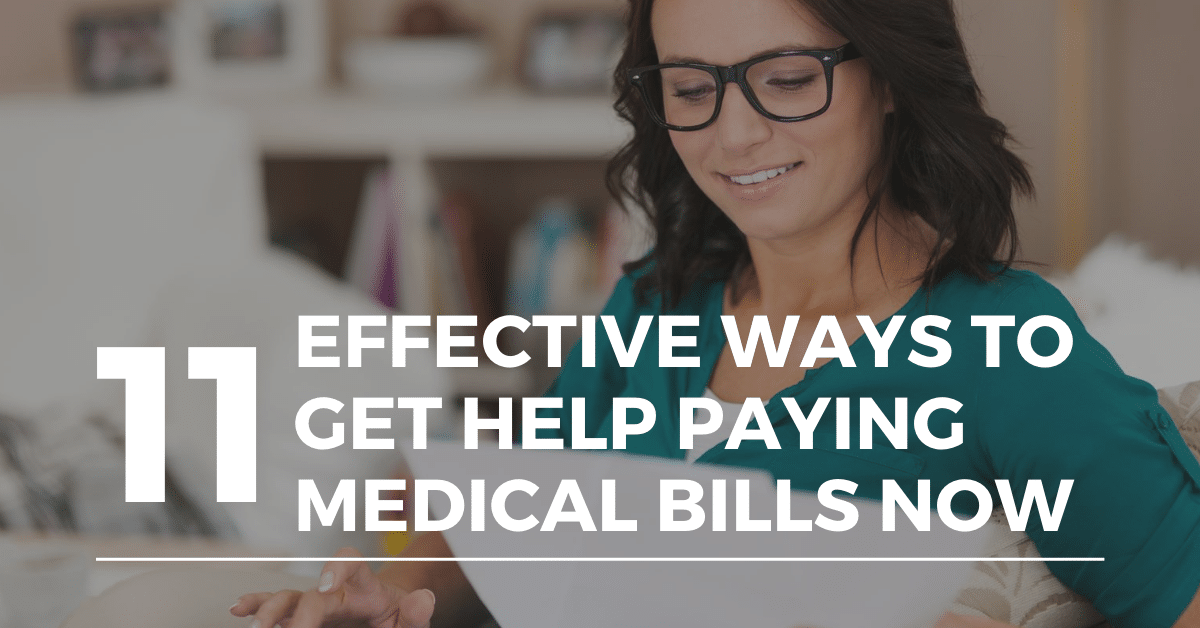Chances are you know someone who has been buried in mounds of medical debt. It’s a financial epidemic that can destroy lives and families, finances, and peace of mind. In fact, a staggering 66.5% of bankruptcies in the U.S. can be attributed to medical bills.
66.5% of bankruptcies in the United States can be attributed to medical bills.
CNBC, 2020
That’s over half a million families each year.
So, you won’t be surprised that the United States ranks #1 for high healthcare costs. Healthcare represents almost 20% of our economy, and certain people among us feel the brunt of it: those without health insurance or with high deductibles. It’s also important to note that individuals with chronic illnesses and disabilities are often among those who can least afford the healthcare they need.
But even people who think they have good insurance often find out too late that insurance doesn’t cover all medical care—or things they thought were covered get denied on the backend.
Medical bills add insult to injury. And with the Covid-19 pandemic, it’s getting even worse.
Chances are in your lifetime, you may need help paying medical bills. And we want you to know that you have options. Read on for useful tips you can use now to get through this.
1. Make sure you owe the money
You have the right to receive an itemized bill from your medical providers. If your bill does not list the different services you received and the cost for each, ask for an itemized list. Review all of the documents. Check for duplication of services or questionable line items.
If you were charged $50 for a Tylenol, you have a right to ask for an explanation.
During a hospital stay, the hospital is not the only provider who wants to be paid. There were also doctors who cared for you. These are usually associated with the hospital. But they may send you separate bills.
There are also third-party companies like labs, medical supply companies, radiology, and more who may try to send you a bill.
In many cases, these third parties have already been paid through insurance, Medicaid, Medicare, or the facility, according to negotiated rates. But either due to poor billing practices or out and out fraud, they may try to get you to pay on top of that. They may threaten collections and use other harassing practices.
If you see unexpected or duplicate charges across bills, speak with the hospital billing office and your insurance company before paying them. They can confirm whether you actually owe this money. And you can report harassing phone calls and texts to the Federal Trade Commission (FTC).
Make copies of your bills and keep them in a safe place. So, if a new bill comes in six months later, you can compare it to earlier bills.
2. Learn what happens to unpaid medical bills
A healthcare provider will attempt to collect several times before turning the account over to a collections agency. These companies buy unpaid medical bills for dimes on the dollar in the hopes that they can collect more money from you than they paid for the debt.
Once a debt goes to collections, those polite reminders from the healthcare provider stop. They are often replaced with people whose job it is to get any money out of you however they can.
The FTC enforces a federal law called the Fair Debt Collection Practices Act (FDCPA). This regulates how they contact you and how often. But these people are relentless.
Once something goes to the debt collectors, it will be your credit report. It will stay there for seven years, lowering your credit score. And you will no longer be able to work with the hospital or other medical providers to get the costs down.
We aren’t mentioning this to frighten you. Instead, we want to point out that you have rights. And it’s better to address medical bills head-on rather than letting them go to collections, when possible. But if your medical bills are already in collections, stay strong.
We have options for you too.
3. Ask about a payment plan
Here’s the big secret. Hospitals are accustomed to not getting paid sometimes. And they really don’t want to send the bill to collections. Doing so means they lose money. So, if you approach them and show your intention to pay, they may be more than happy to set up a payment plan for you.
Collections agencies may also be willing to work out a plan and get off your back as long as you keep up with payments.
And best-selling author and financial radio host Dave Ramsey would also remind you to always get a payment plan in writing and make sure you understand the agreement. Never give a collections company access to your credit card or bank account.
Never wire money. Instead, send them a check or money order the old fashioned way.
4. Try to negotiate the medical costs and payback terms

Once again, the hospital would rather work with you. It’s in their best interest to get what they can. So understand your negotiation power and try some of these negotiation strategies:
- Ask about a 0% interest loan if you pay it back in a certain amount of time and make regular payments.
- See if they will take your insurance company’s rates. These are often 20-40% less than the amount you were billed. Medicare also has negotiated rates.
- If uninsured, ask if they’ll let you pay the rates of a major insurer in your area or Medicare.
You do have some leverage. But approach this with some humility. If you act entitled, they are more likely to get defensive and not want to work with you.
Example of a good approach, “I value the medical care provided at {call the hospital by name}. I want to make sure you get paid. But I don’t have insurance. This is a lot of money to me. Could you take Medicare rates and set up a payment plan?”
5. Ask about financial assistance
“Nonprofit hospitals are required by law to offer financial assistance to people with low incomes who also meet certain asset requirements.”
Nonprofit hospitals are required by law to offer financial assistance to people with low incomes who also meet certain asset requirements. Be prepared to have to show proof of your finances like:
- Tax returns
- Expenses
- Assets
After you provide this, the hospital may decide that it’s not worth trying to recoup. So they just write it off. In other cases, they may have a clear plan for helping people handle big hospital bills, so you can skip the negotiation of medical expenses.
6. See if crowdfunding is good fit for your situation
The crowd-sharing or crowdfunding method works well for people with a strong family or community network, as well as individuals with an affinity for social media. Many people who are willing to give a little can add up to a lot.
But be prepared to share more about your medical condition than you may want to. You may have to express your feelings and how the ailment is impacting you and your family to generate support.
7. Look into charity care assistance
Many nonprofit organizations host regular fundraisers to generate funds to help individuals and families with high medical bills. Some of the more well-known organizations help children. But organizations out there exist for just about any demographic or ailment.
Some of these organizations include:
- The Pan Foundation (helps people with rare diseases)
- UnitedHealthcare Children’s Foundation
- The Leukemia & Lymphoma Society
- CancerCare Copay Assistance Foundation
- The Catastrophic Illness In Children Relief Fund
- The HealthWell Foundation
8. Look into federal and state programs
Contact your state’s Department of Human Services, which may alternatively be called the Department of Social Services (or Health Services). Your state may have a financial assistance program you qualify for.
On a federal level, if you have a lower income and have a child who needs medical care, your child may qualify for children’s health insurance programs (CHIP), which is low-cost health coverage for children.
9. Join disease-specific online forums
Online forums are places where people who have a similar interest come together to share experiences and information. For example, the Inspire online community has built forums around everything from blood disorders to childhood illness to specific cancers.
These are great places to ask questions and learn about resources that may be hard to find through a simple Google search.
10. Speak with a Patient Advocate
A patient advocate, or medical billing advocate, is a third-party who helps people understand their debt relief options. And while bankruptcy is one of those options, a competent advocate knows the system. In most cases, they can help you prevent that outcome.
In addition to the above ways to get help paying medical bills, this professional may help you file an appeal with your insurer, putting their skills to work to make the case in a way you might not have thought to.
Consumer Reports recommends that you not just hire anyone, though. Look for someone who offers a free initial consultation to make sure they can help you. And check out their reviews. Get a referral from someone who has been in your shoes, if possible.
Some patient advocates are for-profit, so you will need to pay them for their time. There are also nonprofit organizations that offer this service for free like the Patient Advocate Foundation, but they can’t take on every case due to limited resources.
11. Explore multiple options
Don’t get discouraged if one of these options yields $500 when your medical bills are $50,000, or $500,000. That’s $500 you didn’t have before. Several of the above methods may prove effective over time.
You may need to contact many organizations and government programs to start taking large chunks out of this medical debt. Family and friends can also be a source of emotional support, financial assistance, and overall knowledge. Slowly but surely, you can reclaim your personal finance and peace of mind.
